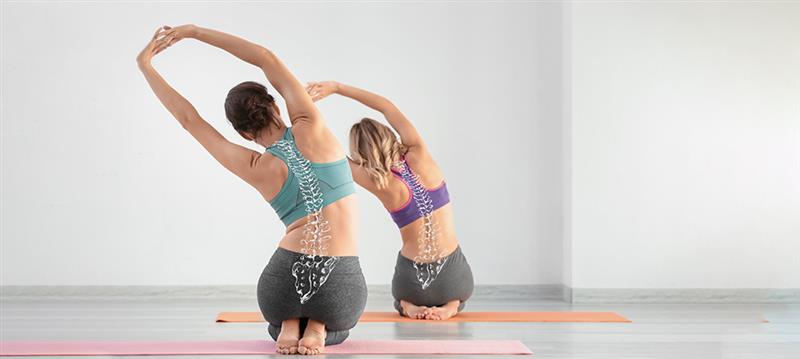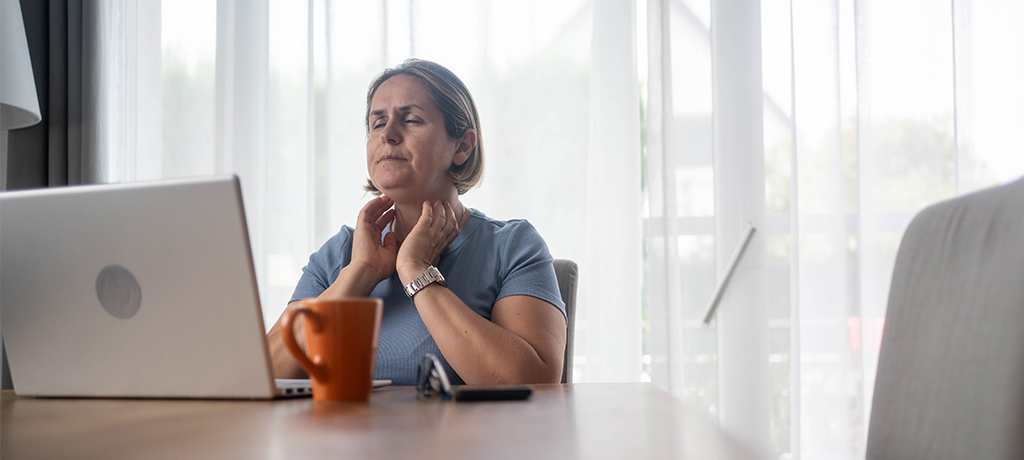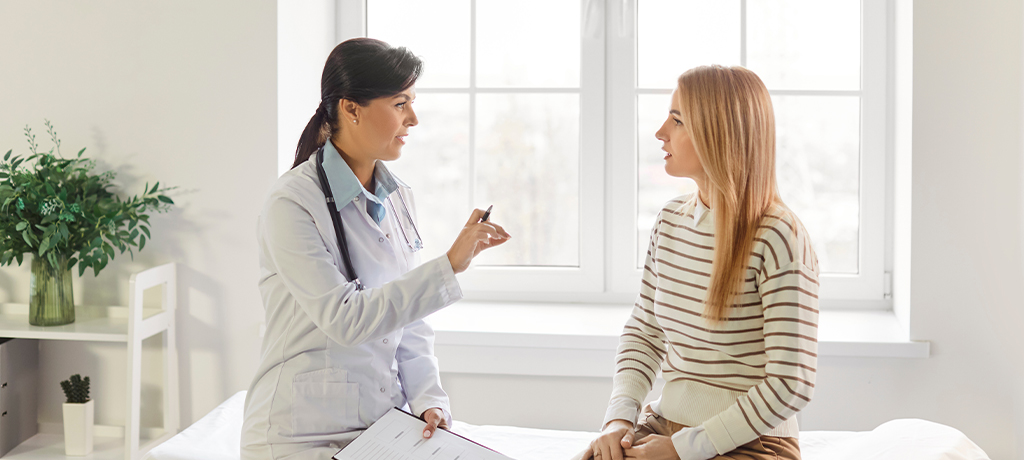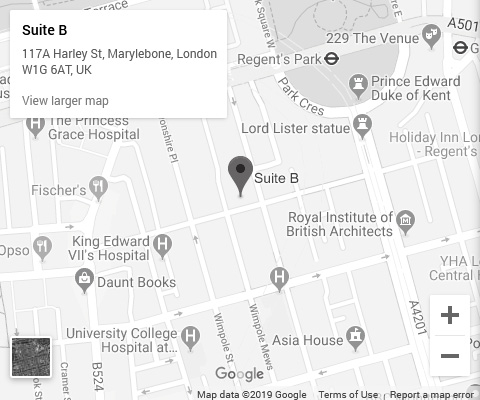
Menopause is a natural phase of life that brings about significant changes in a woman’s body, from hot flushes and mood swings to sleep disturbances. However, one often overlooked yet critical aspect of menopause is its impact on bone health. Did you know that during menopause, bone density can decline rapidly due to hormonal shifts? This makes women more vulnerable to osteoporosis, a condition where bones become fragile and prone to fractures. In the UK, over 3 million people are affected by osteoporosis, with women being disproportionately impacted. If you’re wondering, “Bone loss after menopause: what to do,” this guide will walk you through prevention, management, and lifestyle changes to protect your bones.
What Causes Bone Loss After Menopause?
The primary culprit behind bone loss during menopause is the sharp decline in oestrogen levels. Oestrogen plays a vital role in maintaining bone density by regulating the activity of cells called osteoclasts, which break down old bone tissue. When oestrogen levels drop, osteoclasts go into overdrive, leading to faster bone breakdown than your body can repair. This imbalance can result in up to 20% bone loss in the first 5–7 years post-menopause - a staggering figure that underscores the importance of early intervention.
Genetics also play a role; if your mother or grandmother had osteoporosis, you may be at higher risk. Lifestyle factors such as smoking, excessive alcohol consumption, and a sedentary lifestyle further exacerbate bone loss. Early menopause (before age 45) poses an even greater long-term risk, making it crucial to address the “impact of early menopause on bone health long term”.
When Should You Get a Bone Density Scan (DEXA)?
If you’re concerned about your bone health, a DEXA (Dual-Energy X-ray Absorptiometry) scan is the gold standard for assessing bone density. This quick, painless test measures the mineral content in your bones, typically focusing on areas like the hip and spine, which are prone to fractures.
According to guidelines, women over 50 with risk factors - such as a family history of osteoporosis, early menopause, or previous fractures - should consider getting a scan. NICE (National Institute for Health and Care Excellence) recommends DEXA scans for women aged 65+ or younger if they have additional risk factors. For those seeking quicker access, private clinics across London offer affordable DEXA scans, often with same-day results. Knowing “when to get a bone density scan after menopause UK” could be the first step in safeguarding your future mobility.
The Role of Hormone Replacement Therapy (HRT)
Hormone Replacement Therapy (HRT) is a powerful tool for managing menopausal symptoms and maintaining bone density. By replenishing lost oestrogen, HRT slows down bone resorption and helps preserve skeletal strength. There are two main types: oestrogen-only HRT (suitable for women without a uterus) and combined HRT (which includes progesterone).
and NICE guidelines support the use of HRT for bone protection, especially for women under 60 or within 10 years of menopause onset. Studies show that HRT not only prevents bone loss but also reduces fracture risk. However, it’s not without risks; HRT may slightly increase the likelihood of blood clots or breast cancer in some women. It’s essential to discuss these factors with your GP to determine if HRT is right for you. So, does HRT help maintain bone density after menopause? Absolutely - if used appropriately.
Diet Tips: Nutrients That Strengthen Bones
Your diet plays a pivotal role in maintaining strong bones during and after menopause. Calcium, Vitamin D, Vitamin K2, and Magnesium are the superheroes of bone health.
- Calcium: Found in dairy products like milk, cheese, and yoghurt, as well as fortified plant-based alternatives. Public Health England recommends 700 mg daily for adults, increasing to 1200 mg for postmenopausal women.
- Vitamin D: D: D: Essential for calcium absorption, this nutrient comes from sunlight exposure and foods like oily fish (salmon, mackerel), eggs, and fortified cereals. Many UK residents are deficient, so supplements may be necessary, especially during winter months.
- Vitamin K2: Works alongside calcium to direct it into bones rather than arteries. Sources include fermented foods like natto and certain cheeses.
- Magnesium: Supports bone formation and can be found in nuts, seeds, and leafy greens.
For those unable to meet their needs through diet alone, high-quality supplements are widely available. Always consult your doctor before starting any new supplement regimen.
Exercise for Stronger Bones
Exercise isn’t just good for your heart and muscles - it’s also vital for building and maintaining bone density. Weight-bearing exercises like walking, jogging, and dancing stimulate bone growth by creating stress that encourages bone remodelling. Resistance training with weights or resistance bands is equally effective, particularly for strengthening the hips and spine.
The recommends at least 150 minutes of moderate-intensity activity per week, along with muscle-strengthening activities on two or more days. Pilates and yoga are excellent options for improving balance and flexibility, reducing the risk of falls. Wondering, “Can weight-bearing exercise reduce fracture risk in menopausal women?” Research says yes - regular physical activity significantly lowers the chances of fractures.
Natural & Lifestyle Remedies
If HRT isn’t suitable for you, there are plenty of non-pharmacological ways to support bone health. Smoking cessation and limiting alcohol intake are simple yet impactful changes. Moderate sun exposure boosts vitamin D levels naturally, while incorporating phytoestrogens - plant compounds that mimic oestrogen - into your diet can provide mild hormonal support. Foods rich in phytoestrogens include soybeans, flaxseeds, and chickpeas.
Yoga and tai chi are gentle exercises that improve posture, balance, and mental wellbeing. These practices can complement other treatments and promote overall health. Looking for “natural remedies to prevent osteoporosis during menopause”? Start small, focus on consistency, and celebrate every step toward better bone health.
When to Seek Medical Advice
Certain symptoms or risk factors warrant immediate attention. If you experience unexplained back pain, height loss, or frequent fractures, book an appointment with your GP. They may refer you to a specialist or recommend diagnostic tests like a DEXA scan. Private clinics in London offer comprehensive menopause consultations and tailored treatment plans, ensuring you receive personalised care.
Don’t wait until problems arise - regular check-ups are key. Consider booking a bone density scan or menopause consultation today to stay ahead of potential issues.
Conclusion
Menopause doesn’t have to mean compromising your bone health. With early prevention, regular screening, and a balanced lifestyle, you can maintain strong bones well into your later years. Remember, knowledge is power: understanding “bone loss after menopause: what to do” empowers you to take proactive steps. Whether it’s adjusting your diet, embracing exercise, exploring HRT, or adopting natural remedies, there’s no shortage of ways to nurture your skeletal system.
Your bones are the foundation of your body - treat them with care, and they’ll support you for decades to come.
Protect Your Bones Today!
Don’t wait until it’s too late. Book a consultation with our experts to assess your bone health and get personalised guidance for stronger bones during menopause.
FAQ Section
Can menopause cause osteoporosis?
Yes, the hormonal changes during menopause accelerate bone loss, increasing the risk of osteoporosis.
What vitamins are best for bone health in menopause?
Calcium, vitamin D, vitamin K2, and magnesium are essential for maintaining strong bones.
Does walking help bone density?
Absolutely! Walking is a weight-bearing exercise that stimulates bone growth and reduces fracture risk.
Is HRT the only option for strong bones?
No, while HRT is highly effective, diet, exercise, and lifestyle changes can also make a big difference.
How much calcium do I need daily after 50?
Postmenopausal women should aim for 1200 mg of calcium daily, according to UK guidelines.
By addressing these questions and implementing the strategies outlined above, you’ll be well-equipped to navigate menopause with confidence and resilience.






-in-the-UK.jpg)

